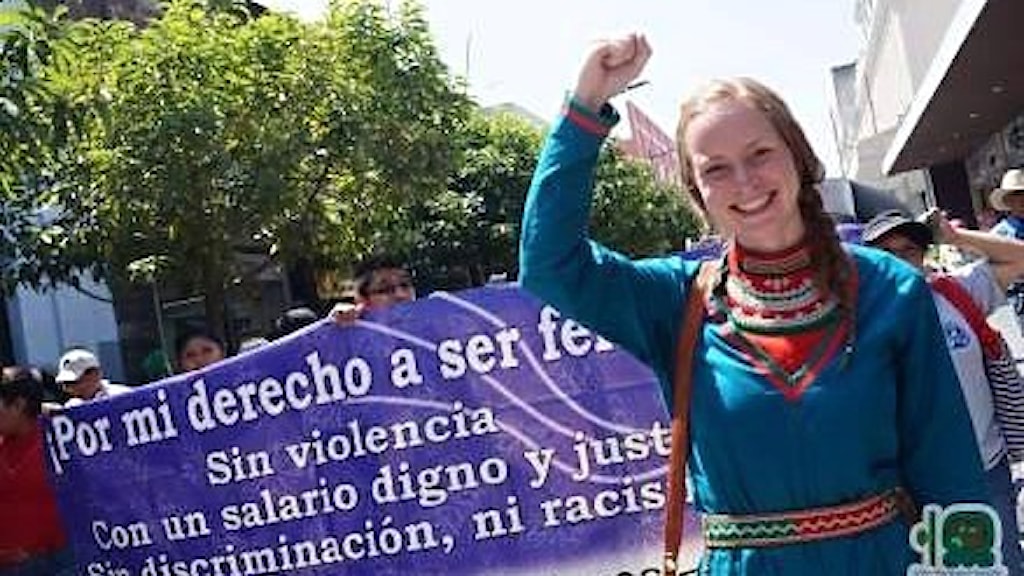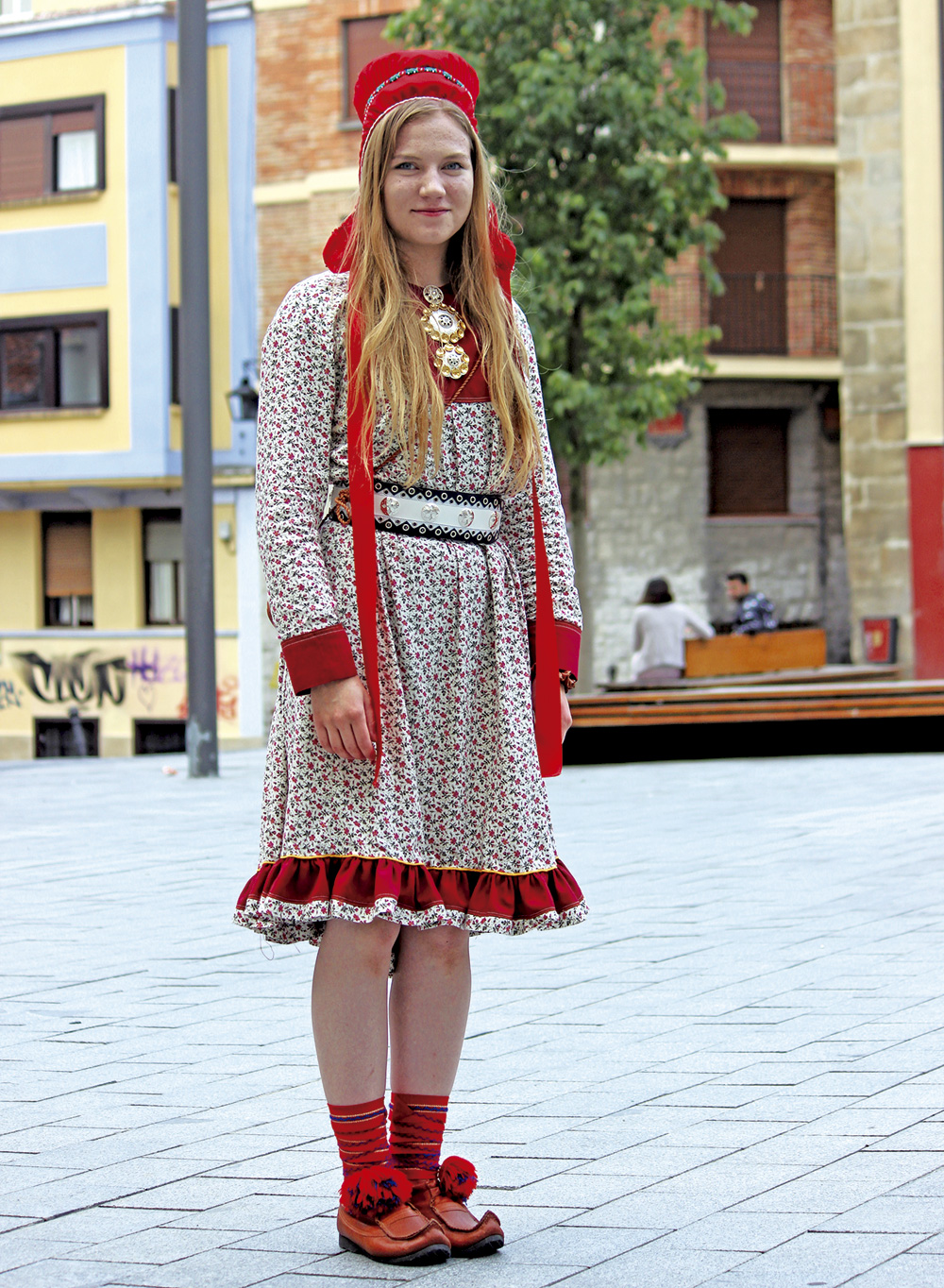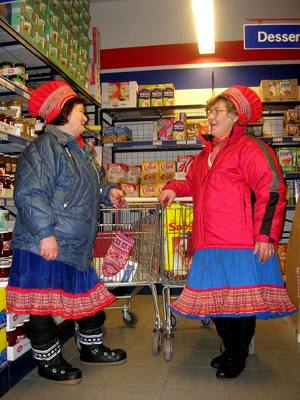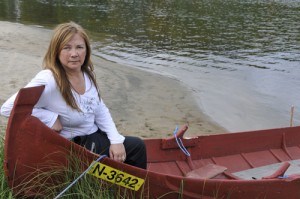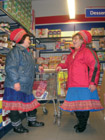Sami has plenty of snow words for climate change
- Sami has hundreds of words to name snow, ice, cold weather... However, the Arctic is tempering and some words are used less. Above all, it is losing the vocabulary of salmon fishing and reindeer care.

The British media BBC interviews Pentti Pieski, a translator based in Sami, north of Finland, and a tourist worker. Pieski is concerned about climate change and, consequently, about the loss of Samian languages. Sami is a country divided between Finland, Sweden, Norway and Russia. Climate change has an impact on the life of pain and on the activities they have maintained for centuries, such as salmon fishing and reindeer care. If traditional lifestyles change, languages are also changing.
In the last three years, the Piqui Sami has not gone to the Teno River to fish salmon, the governments of Finland and Norway have banned fishing for salmon shortages. If you are not going to fish, there is no dialogue about salmon and fishing, you do not have to talk to anyone to make the preparations, you will not be with anyone while they fish in the fire, “there is no dialogue and some languages are disappearing.”
According to UNESCO, there are ten Sami languages and they are all in danger, at least one is considered missing. The most spoken samier has between 20,000 and 30,000 speakers in Norway, Sweden and Finland. The second most important language is 2,000 speakers, while the rest has a maximum of hundreds.
No spring salmon
Pieski, a fisherman, recalled that the word jieknagusolli is one of the words in danger of extinction. It means ‘spring salmon’ and less and less is being used. In spring they call the salmon that appears in the river when the ice breaks. Before banning fishing, the fishing season was restricted by a shortage of salmon, and the season starts on 1 June. By then the ice of the river is already melted and fishermen no longer talk about salmon in early spring. Jiekhegolli becomes a word to talk about the past.
360 Ways to Say Snow
Several researchers, leveraging the wisdom of the reindeer guardians, analyze the words to name snow and ice and have over 300 listings. Many of these words are intimately related to the care of reindeer and the ecology of reindeer. For example, a word can tell you what snow looks like for snow deer to find food underneath; or whether deer keepers can easily detect fingerprints in that snow; or whether they can walk comfortably on it. Some of these words no longer need them because climate change is changing and the kind of snow and the time they want to designate is disappearing.
One of those words with many options to lose is ealàt. It refers to a particular snow state: snow is thin and reindeer have no trouble getting lower lichens, as there are no ice sheets between them. They're quality lichens, they're not wet. Reindeer doesn't eat mold licen. So, this word provides information about snow, ice and the state of food.
30 urteren ondoren, Gallivareko (Suedia) tribunal batek Zirkulu Polarrean dagoen Girjaseko sami herri indigenari eman dio beraien herrialdean arrantzatzeko eta ehizatzeko eskubidea. Garan irakur daitekeenez, 1993. urtean kendu zieten eskubidea berreskuratu du komunitateak. Dena... [+]
Suedia iparraldean bizi diren samiak burdina ustiatzeko ireki nahi duten meategi baten aurka ari dira borrokan. Atzo 50 pertsonaz osatutako protesta desegin zuen poliziak eta zortzi atxilotu zituen.
Duela urte asko, samien herri indigena nahi bezala bizi zen eskandinaviar penintsularen iparraldean. Naturarekin bat, bizia elur-oreinen zaintza eta arrantzaren inguruan egiten zuten gehienbat. Lurrak emandakoari ahalik eta probetxurik gehien atereaz, beren sinesmenekin lasai... [+]
Mari Boine artista sami ezagun eta errespetatuena da. Samiak Norvegia, Suedia, Finlandia eta Errusia iparraldean bizi diren indigenak dira, eta diskriminazio garai zaharrak atzean utzi badituzte ere, nahikoa lan badute euren hizkuntzari eusten (egun, datu zehatzik ez bada ere,... [+]
Duela urte asko, samien herri indigena nahi bezala bizi zen eskandinaviar penintsularen iparraldean. Naturarekin bat, bizia elur-oreinen zaintza eta arrantzaren inguruan egiten zuten gehienbat. Lurrak emandakoari ahalik eta probetxurik gehien atereaz, beren sinesmenekin lasai... [+]








